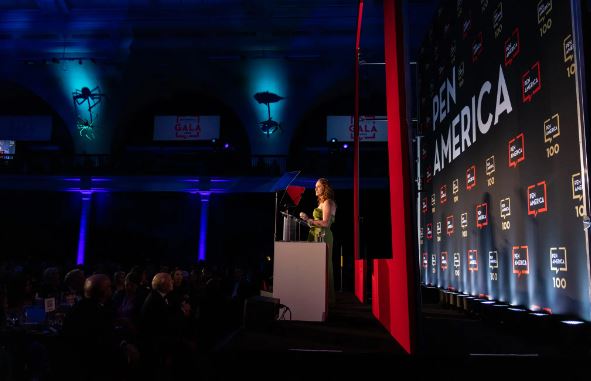The cancellation of PEN America’s annual World Voices Festival has stirred significant debate and reflection within the literary community. This decision comes in the wake of a boycott campaign led by writers critical of the organization’s perceived stance on the conflict in Gaza.
Initially scheduled to commence on May 8, the festival faced a wave of withdrawals from participants, prompting PEN America to call off the event on Friday. This move followed closely on the heels of the cancellation of the prize ceremony for its literary awards, as nearly half of the nominees withdrew in protest. The festival, renowned for its international participation and diverse programming, typically encompasses panels, readings, and various literary events held in New York and Los Angeles.
In a press release, PEN America cited the escalating number of withdrawals, attributing them to differences of opinion with the organization and a sense of apprehension among some writers, who expressed genuine fear or felt pressured to withdraw. The decision to cancel the festival underscored PEN America’s commitment to upholding writers’ freedom of expression and ensuring an environment where diverse perspectives can thrive without undue risk.
PEN America, an organization dedicated to championing literature and human rights, finds itself embroiled in controversy amid the fallout from the conflict between Hamas and Israel. While other cultural institutions have faced similar challenges, PEN America has been vocal in criticizing decisions to cancel or restrict pro-Palestinian writers or events. Suzanne Nossel, the group’s chief executive, expressed dismay over what she described as a troubling trend of censorship and stigmatization.
However, PEN America has faced internal and external criticism for its perceived handling of the Gaza conflict. Open letters and public statements have lambasted the organization’s leadership, accusing it of failing to adequately address the impact of Israel’s military campaign on free expression and cultural life. Some have even questioned the organization’s independence, alleging it serves as a mouthpiece for the United States or Israeli governments.
The cancellation of two prominent events raises doubts about the fate of PEN America’s annual gala, a cornerstone of the New York literary calendar, scheduled for May 16. Nossel indicated that decisions regarding the gala would be made on a day-by-day basis, reflecting the organization’s ongoing assessment of the situation.
Despite the challenges, Nossel and Clarisse Rosaz Shariyf, PEN America’s director of literary programming, underscored the organization’s enduring commitment to fostering open debate and dialogue. They lamented the erosion of civil discourse, emphasizing PEN America’s role as a champion of free expression and a platform for diverse voices.
Internally, PEN America has faced scrutiny and dissent over its response to the Gaza conflict. Concerns have been raised about the organization’s perceived reluctance to confront the humanitarian crisis unfolding in Gaza, including the loss of life among Palestinian journalists and damage to cultural institutions.
Criticism reached a fever pitch in February when organizers of a PEN-sponsored event removed a Palestinian American writer who disrupted the proceedings. Hundreds of writers signed an open letter condemning PEN America’s actions and calling for a more robust response to the conflict. The subsequent withdrawal of well-known writers from the World Voices Festival further intensified pressure on the organization.
While some writers have defended their decision to withdraw from the festival, others have expressed skepticism about the efficacy of PEN America’s response. Hari Kunzru, a novelist who withdrew from the festival, criticized the organization for what he deemed a lack of substantive engagement with the Gaza conflict. He characterized PEN America’s recent initiatives as inadequate attempts to manage public perception rather than address underlying concerns.
Despite these challenges, PEN America remains steadfast in its mission to promote free expression and defend the rights of writers worldwide. As current president Jennifer Finney Boylan emphasized, listening to critics and remaining true to its principles are essential aspects of PEN America’s ongoing evolution.
The cancellation of the World Voices Festival underscores the complex intersection of literature, politics, and human rights, prompting introspection and debate within the literary community. As PEN America navigates these turbulent waters, its commitment to fostering open dialogue and championing free expression remains unwavering.

